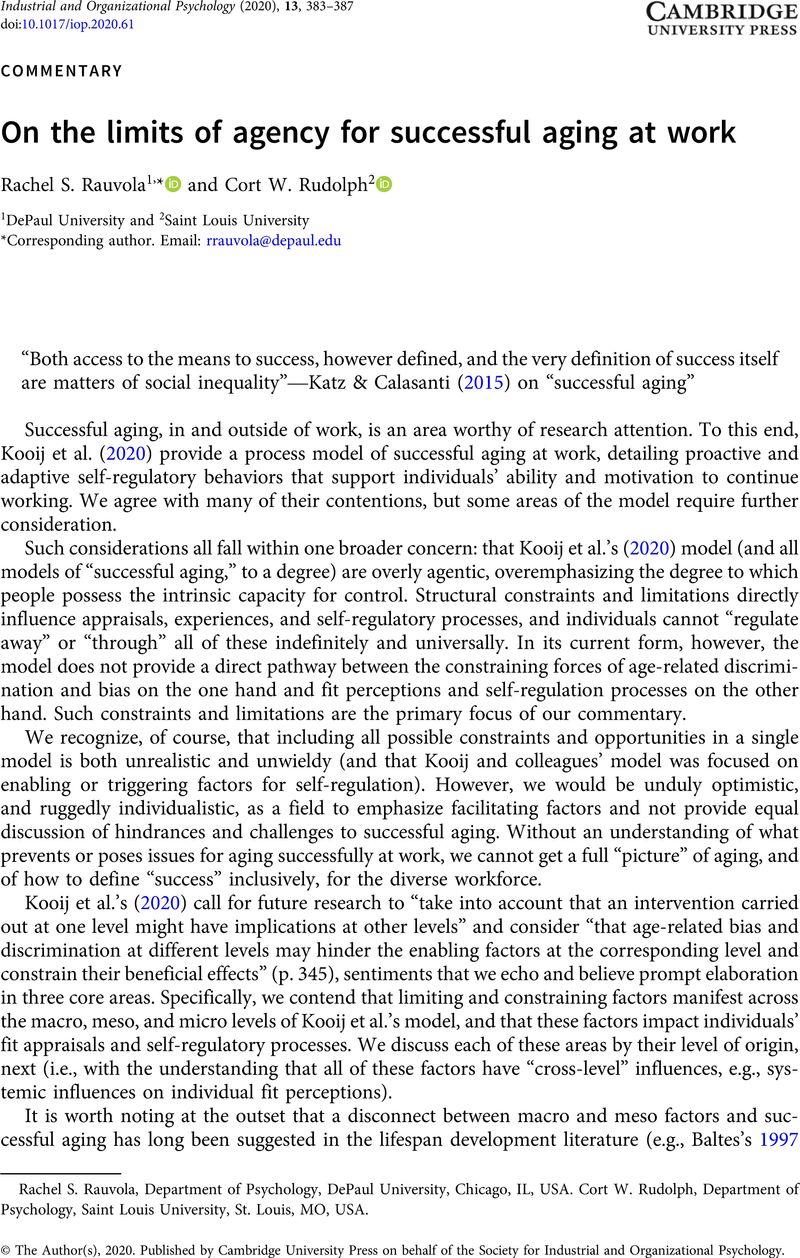Crossref Citations
This article has been cited by the following publications. This list is generated based on data provided by Crossref.
Zacher, Hannes
Sagha Zadeh, Rana
Heckhausen, Jutta
Oettingen, Gabriele
and
Hennecke, Marie
2021.
Motivation and Healthy Aging at Work.
The Journals of Gerontology: Series B,
Vol. 76,
Issue. Supplement_2,
p.
S145.
Rudolph, Cort W.
Rauvola, Rachel S.
Costanza, David P.
and
Zacher, Hannes
2021.
Generations and Generational Differences: Debunking Myths in Organizational Science and Practice and Paving New Paths Forward.
Journal of Business and Psychology,
Vol. 36,
Issue. 6,
p.
945.
Andrea, Sarah B
Eisenberg-Guyot, Jerzy
Oddo, Vanessa M
Peckham, Trevor
Jacoby, Daniel
Hajat, Anjum
and
Wang, Mo
2022.
Beyond Hours Worked and Dollars Earned: Multidimensional EQ, Retirement Trajectories and Health in Later Life.
Work, Aging and Retirement,
Vol. 8,
Issue. 1,
p.
51.
Baloch, Qadar Bakhsh
Maher, Sourath
Iqbal, Nadeem
Shah, Syed Naseeb
Sheeraz, Muhammad
Raheem, Faryal
and
Khan, Kanwal Iqbal
2022.
Role of organizational environment in sustained organizational economic performance.
Business Process Management Journal,
Vol. 28,
Issue. 1,
p.
131.
Rauvola, Rachel S
Rudolph, Cort W
and
Truxillo, Donald
2022.
Control at Work: An Integrative, Lifespan-Informed Review.
Work, Aging and Retirement,
Vol. 8,
Issue. 2,
p.
117.
Turek, Konrad
Oude Mulders, Jaap
Stypińska, Justyna
and
Truxillo, Donald
2022.
Different Shades of Discriminatory Effects of Age Stereotypes in the Workplace: A Multilevel and Dynamic Perspective on Organizational Behaviors.
Work, Aging and Retirement,
Vol. 8,
Issue. 4,
p.
343.
Rauvola, Rachel S.
and
Rudolph, Cort W.
2023.
Worker aging, control, and well-being: A specification curve analysis.
Acta Psychologica,
Vol. 233,
Issue. ,
p.
103833.





